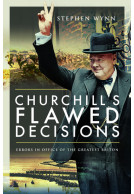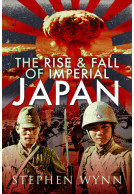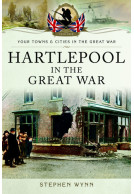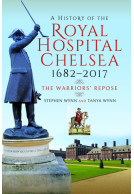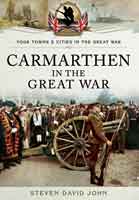Women in the Great War (Paperback)
Imprint: Pen & Sword Military
Pages: 144
ISBN: 9781473834149
Published: 5th June 2017
(click here for international delivery rates)
Order within the next 1 hour, 4 minutes to get your order processed the next working day!
Need a currency converter? Check XE.com for live rates
| Other formats available | Price |
|---|---|
| Women in the Great War ePub (9.2 MB) Add to Basket | £6.99 |
The First World War was fought on two fronts. In a military sense it was fought on the battlefields throughout Europe, the Gallipoli peninsular and other such theatres of war, but on the Home Front it was the arduous efforts of women that kept the country running.
Before the war women in the workplace were employed in such jobs as domestic service, clerical work, shop assistants, teachers or as barmaids. These jobs were nearly all undertaken by single women, as once they were married their job swiftly became that a of a wife, mother and home maker. The outbreak of the war changed all of that. Suddenly, women were catapulted into a whole new sphere of work that had previously been the sole domain of men. Women began to work in munitions factories, as nurses in military hospitals, bus drivers, mechanics, taxi drivers, as well as running homes and looking after children, all whilst worrying about their men folk who were away fighting a war in some foreign clime, not knowing if they were ever going to see them again.
With the work came a wage, which provided women with financial freedom for the first time, as well as an element of independence and social integration, which they would have possibly never otherwise experienced. Women were not paid the same wages as men for doing the same work, but what they did earn was much more than they had ever earned before.
This was also a time of the suffrage movement, who wanted more out of life for women. Accordingly, some of these women were reluctant to stop working, with some of these being sacked so that returning soldiers could have their pre-war jobs back. Whilst, tens of thousands of women were left widowed, many with young children to bring up. Despite all of this, one thing was for sure, for lots of women there was no going back to how things had been before the war. There was only going to be one way, and that was forward.
I enjoyed reading Women in the Great War by Stephen Wynn, Tanya Wynn. I expected to read about canary girls, but it was so much more than that. There are spies and nurses and the book was so much more interesting than I imagined it would be. There is a whole chapter with different women and their stories and I think that was my favourite part of the book. Especially as the authors mention British women, but also other European women too, who were British spies, for example. I did not know about them, so it was very nice to read about them.
Coffee and Books
Read the full review here
This is an extremely interesting, fast-paced and informative book...
Lucy London, War Poets
A most enjoyable book which I would definitely recommend to anyone interested in the role of women during The First World War.
As featured in
Stand To! Western Front Assc No.111
As reviewed and featured on Lil's Vintage World, YouTube Vlog!
Lil's Vintage World, YouTube
An excellent appreciation of the work and achievement of the fairer sex during this terrible world conflict.
This England, Winter 2017
Overall, Women in the Great War is a well-written and well-researched book and I would highly recommend it to anyone who is interested in this period of history and also women’s history.
Where There's Ink, There's Paper - Lauren Gent
Read the complete review here.
As featured in books in brief
WDYTYA? October, 2017
This book provides a comprehensive but all too brief overview of the areas in which women were active, and I found myself wishing it was a much heavier, thicker, more exhaustive tome once I was done.
The Great War magazine, September 2017 - reviewed by Mark Marsay
Good overview. 8/10
As featured in
Essence Magazine
The book is well researched and combines specific data with personal stories, making it of interest to both researchers and readers who want to know more about that historical period, in particular about women’s history. Some chapters, like the one dedicated to individual women, are a good starting point to encourage further reading and engage the curiosity of those not so familiar with the topic.
Olga Nunez Miret
A fitting homage to those women, who, as the authors write in the conclusion, should also be honoured on Remembrance Day.
Read the complete review here.
It will undoubtedly be of interest to both social and military historians seeking to contextualize the war, and women's lives during it.
Your Family History, August 2017
This book details some of the organizations that put women to work, enumerates individual stories, lists women who lost their lives during the war and discusses the unique role played by the female members of the royal family. The book is chock-full of photographs, which portray the individual women in all their feminine yet most assuredly strong personas. Their bravery and perseverance, which predate Rosy the Riveter, laid the groundwork for who we are as women today. I highly recommend this well-researched book!
NetGalley, reviewed by Suzanne Thompson
Rating: 5 out of 5 stars
I've read stories in magazines and novels about how men returning from action on the Western Front and elsewhere during WW1 returned home to find their jobs taken by women. Stephen and Tanya Wynn take us back four years to the time when the decisions were taken that the women left behind were given the task of keeping vital industries running, particularly agriculture but also in arms and equipment manufacture for the BEF. Superlative social history from Pen and Sword.
Books Monthly
Read the complete review here.
Rating: 5 out of 5 stars
NetGalley, reviewed by Janet Waltz
This was an AMAZING book about the roles of women in the Great War. It showed the shift from homemaker pre-war to how women began to work in munitions factories, as nurses in military hospitals, bus drivers, mechanics, taxi drivers, as well as running homes and looking after children, all while worrying about their husbands who were away fighting a war, and not knowing if they were ever going to see them again.
It was fantastic in showing how with money earned from working, women were provided with financial freedom, independence and social integration, which they would have never otherwise obtained.
This book also illustrated the time of the suffrage movement. It highlighted how these newly working women were reluctant to give up their independence. Women were being fired so that returning soldiers could have their prewar jobs back, even though they had held down the fort during the war. Tens of thousands of women were left widowed, many with young children to bring up, and employers wanted to return to the male-dominated workplace.
I would highly recommend this book for anyone wanting to know more about the women's suffrage movement in the first world war, or anyone that believes history remain relevant today.
About Stephen Wynn
Stephen is a retired police officer having served with Essex Police as a constable for thirty years between 1983 and 2013. He is married to Tanya and has two sons, Luke and Ross, and a daughter, Aimee. Both Stephen’s grandfathers served in and survived the First World War, one with the Royal Irish Rifles, the other in the Mercantile Marine, whilst his father was a member of the Royal Army Ordnance Corps during the Second World War.
When not writing Stephen can be found walking his dogs with his wife, Tanya, at some unearthly time of the morning when most normal people are still fast asleep.
About Tanya Wynn
Stephen and Tanya Wynn are a husband and wife team. They have been married for twelve years and outside of writing enjoy the simplicities of life. They spend most mornings walking their four German Shepherd dogs at a time when most normal people are still sound asleep.
Animals in the Great War is the third book Stephen and Tanya Wynn have written together, having previously collaborated on Women in the Great War and A History of the Royal Hospital Chelsea 1682-2017. Stephen has written numerous titles in the military history genre over the years. His first book, Two Sons in a Warzone, was published in 2010. It is the true story of his sons first tours in Afghanistan. One of them was injured and the other was shot and wounded.
Nurses of Passchendaele Caring for the Wounded of the Ypres Campaigns 1914 - 1918 (Paperback)
The Ypres Salient saw some of the bitterest fighting of the First World War. The once-fertile fields of Flanders were turned into a quagmire through which men fought for four years. In casualty clearing stations, on ambulance trains and barges, and at base hospitals near the French and Belgian coasts, nurses of many nations cared for these traumatised and damaged men. Drawing on letters, diaries and personal accounts from archives all over the world, The Nurses of Passchendaele tells their stories - faithfully recounting their experiences behind the Ypres Salient in one of the most intense and…
By Christine E HallettClick here to buy both titles for £27.98









